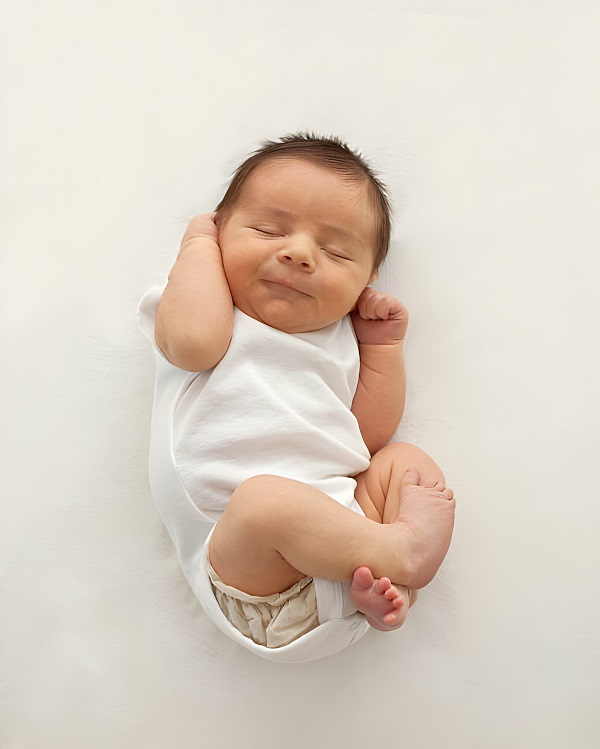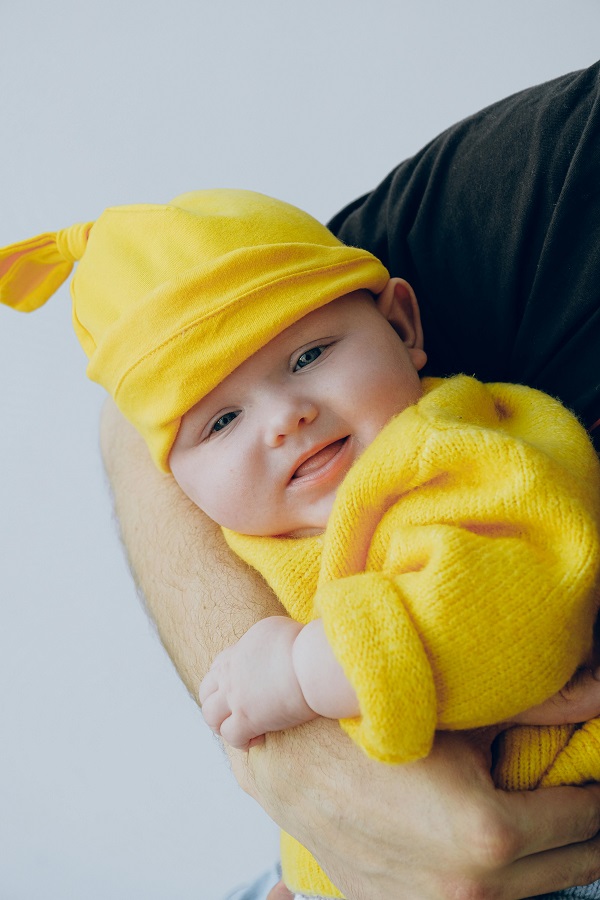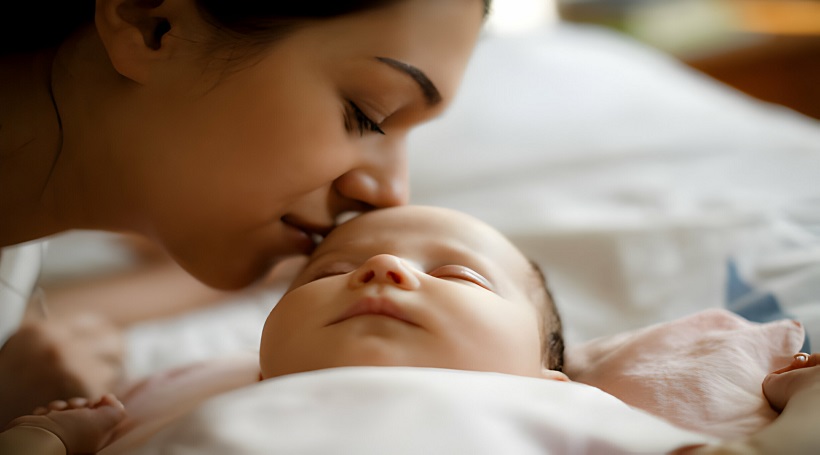Last Updated on January 1, 2025
A baby is no longer considered a newborn after the first 28 days of life, transitioning into the infant stage that lasts until they are 12 months old. This period is crucial for both the baby and the parents, marked by rapid growth and development.

When Is A Baby No Longer A Newborn?
Babies are a source of boundless joy and bring a new dimension of love into the lives of parents. From the moment they enter the world, babies embark on a rapid journey of growth and development. This journey begins in the newborn phase, a term that holds a lot of significance in pediatric care and parenting. Understanding when a baby transitions from being a newborn to an infant is crucial for parents to adapt to their baby’s evolving needs and milestones.
Read More – What To Wear To A Baby Shower: 10 Outfit Ideas & 10 Tips
The Newborn Phase
The newborn phase is the first stage of a baby’s life, spanning from birth to the first 28 days. This period is also known as the neonatal period. During these initial weeks, babies go through significant physical and neurological development. They adapt to life outside the womb, learning to breathe, feed, and regulate their body temperature independently.
Newborns sleep a lot, typically between 16 to 17 hours a day, but they wake up frequently, every 2 to 3 hours, due to their small stomachs needing frequent feedings. Their vision is limited, focusing best on objects 8 to 12 inches away—the approximate distance between a mother’s face and her baby’s while nursing.
Transition to the Infant Stage
After the first 28 days, a baby is no longer classified as a newborn and enters the infant stage. This stage lasts until the baby’s first birthday. The transition from a newborn to an infant is not marked by a specific event but by gradual changes in development, behavior, and physical capabilities.
Physical Growth and Development
Infants grow rapidly in the first year of life. They typically triple their birth weight and increase their length by about 50%. This period requires frequent visits to a pediatrician to monitor growth and ensure that the baby is reaching key developmental milestones.
Cognitive and Motor Development
Infants begin to develop a greater awareness of their surroundings. They start to recognize familiar faces, respond to sounds, and eventually, mimic sounds and expressions. Motor skills also progress, from holding their head up independently to rolling over, sitting, and for some, taking their first steps.
Social and Emotional Development
As infants grow, they also develop socially and emotionally. They begin to smile intentionally, laugh, and engage with caregivers and family members. This engagement is crucial for emotional bonding and social interaction skills.
Read More – Who Not To Invite To Your Baby Shower?
Nutrition and Feeding
The transition from a newborn to an infant also brings changes in feeding patterns and nutrition. While newborns primarily rely on breastmilk or formula, infants gradually start to show readiness for solid foods around 6 months. Introducing solids is a significant milestone and should be done according to pediatric dietary guidelines and under the guidance of a healthcare professional.
Sleep Patterns
Sleep patterns begin to change as a baby moves out of the newborn phase. Infants start to sleep for longer stretches at night, which is a welcome development for many parents. However, sleep regressions and disruptions can also occur due to teething, growth spurts, and the development of new skills.
Health and Immunizations
Infancy is a critical period for immunizations. Vaccines play a vital role in protecting babies from serious illnesses. Parents should follow the immunization schedule recommended by their pediatrician to ensure their baby’s health and well-being.
Parental Adjustments
As babies grow, parents must adjust their approaches to care, bonding, and understanding their baby’s needs. The transition from a newborn to an infant requires flexibility and patience, as each baby’s development path is unique.

Read More – Tips for Selecting the Right Shower Enclosure to Enhance Your Bathroom Space
FAQs
When is a baby no longer a newborn?
A baby transitions from being a newborn to an infant after the first 28 days of life. This period marks significant initial growth and adjustment to the world outside the womb.
How long is the newborn stage?
The newborn stage spans the first 28 days of a baby’s life. It’s a critical time for early development, bonding with parents, and beginning to adapt to life outside the womb.
How long are babies newborns for?
Babies are considered newborns for the first 28 days after birth. During this time, they experience rapid physical and neurological development and require close care and frequent feeding.
How long does the newborn period last?
The newborn period lasts for about 28 days from birth. It is characterized by significant growth, the beginning of sensory development, and the establishment of feeding routines.
How long do babies normally stay in newborns?
Babies normally stay in the newborn phase for 28 days. This phase is marked by rapid changes and adjustments as babies begin their growth and developmental journey.
Conclusion
The journey from being a newborn to becoming an infant is filled with remarkable growth and changes. This period lays the foundation for a child’s future development and well-being. Parents and caregivers play a pivotal role in supporting their babies through this transformative time, ensuring they receive the love, care, and stimulation needed to thrive. Understanding the nuances of these early stages can help parents navigate the challenges and joys of early parenthood, making every moment count.

